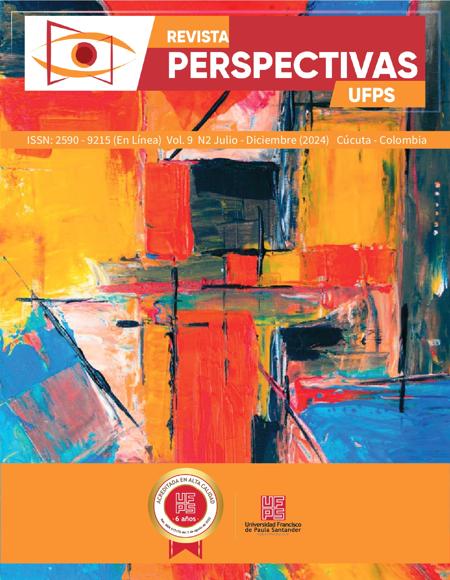La Understanding task-based learning and its implementation: a Public University case
Comprensión de la Metodología de trabajo por tareas y su implementación: el caso de una Universidad Pública
Main Article Content
This article derives from the research project “Evaluación del alcance de la competencia comunicativa en un programa de formación en lengua extranjero –inglés- en el Instituto Tecnológico Metropolitano” subscribed to the Research Direction with code PCI19201. It presents the findings related to the results obtained from the evaluation of an English language acquisition program offered at a public higher education institution in Medellin, Colombia, when it comes to analysing the understanding of the teaching methodology used (Task-Based Learning) in terms of its principles, application and assessment. A mixed methods explanatory multiple case study was carried out and the data collection techniques included document analysis, online surveys, and interviews. Findings show that there is an overall comprehension of Task-Based Learning principles, application and assessment, however, there is a lack of clarity as to why using this methodology in this specific context, which in turns, reflects on unanswered questions when it comes to certain methodological issues of Task-Based Learning use itself within the classroom.
Downloads
Article Details
Arboleda-Arboleda, A., Castro-Garcés, A. Y. (2019). Fostering language learning in the university EFL classroom through literature: A task-based approach. GIST–Education and Learning Research Journal, (19), 101-127. DOI: https://doi.org/10.26817/16925777.706
Arias, C.I. & Maturana, L. M. (2005). Evaluación en lenguas extranjeras: Discursos y prácticas. Íkala: Revista de Lenguaje y Cultura, 10, 63-91. https://doi.org/10.17533/udea.ikala.3051 DOI: https://doi.org/10.17533/udea.ikala.3051
Arias, C., Maturana, L. & Restrepo, M. I. (2012). Evaluación de los aprendizajes en lenguas extranjeras: Hacia prácticas justas y democráticas. Revista Lenguaje, 40(1), 99–126. https://doi.org/10.25100/lenguaje.v40i1.4945 DOI: https://doi.org/10.25100/lenguaje.v40i1.4945
Calvo-Vázquez, M.C. (2010). Estrategia didáctica para el desarrollo de la competencia lectora intercultural en estudiantes no hispanohablantes del curso preparatorio en lengua española de la UMCC. (Not published) [Doctoral dissertation, Universidad de Matanzas “Camilo Cienfuegos”]. Repository UMCC.
Córdoba-Zúñiga, E. (2016). Implementing task-based language teaching to integrate language skills in an EFL program at a Colombian university. Profile Issues in Teachers Professional Development, 18(2), 13-27. https://doi.org/10.15446/profile.v18n2.49754 DOI: https://doi.org/10.15446/profile.v18n2.49754
Cook, V. (2001). Using the First Language in the Classroom. Canadian Modern Language Review, 57(3), 402. http://dx.doi.org/10.3138/cmlr.57.3.402 DOI: https://doi.org/10.3138/cmlr.57.3.402
Delors, J. (1996.): “Los cuatro pilares de la educación” en La educación encierra un tesoro. Informe a la UNESCO de la Comisión internacional sobre la educación para el siglo XXI, Madrid, España: Santillana/UNESCO. pp. 91-103
Duran, G. & Ramaut, G. (2006). Task for absolute beginners and beyond: developing and sequencing tasks at basic proficiency level. En Van den Branden, K (ed). 2006. Task-Based Language Education: From Theory to Practice. (pp. 41-72) Cambridge: Cambridge University Press DOI: https://doi.org/10.1017/CBO9780511667282.004
Ellis, R. (2003). Designing a Task-Based Syllabus. RELC Journal, 34(1), 64–81. https://doi.org/10.1177/003368820303400105 DOI: https://doi.org/10.1177/003368820303400105
Frodden Armstrong, M. C.; Restrepo Marín, M. I. & Maturana Matarroyo, L. (2004). Analysis of Assessment Instruments Used in Foreign Language Teaching. Íkala, Revista De Lenguaje Y Cultura, 9(1), 171–201. https://doi.org/10.17533/udea.ikala.3146 DOI: https://doi.org/10.17533/udea.ikala.3146
González-Humanez, L. E. & Arias, N. (2009). Enhancing oral interaction in English as a foreign language through task-based learning activities. Latin American Journal of Content & Language Integrated Learning, 2(2), 1-9. https://doi.org/10.5294/laclil.2009.2.2.10 DOI: https://doi.org/10.5294/laclil.2009.2.2.10
Kim, Ah-Y. A. (2014). Examining how teachers’ beliefs about communicative language teaching affect their instructional and assessment practices: A qualitative study of EFL university instructors in Colombia. RELC Journal, 45(3), 337-354. https://doi.org/10.1177/0033688214555396 DOI: https://doi.org/10.1177/0033688214555396
Kohonen, V. (1992) Experiential Language Learning: Second Language Learning as Cooperative Learner Education. In Nunan, D. (Ed.), Collaborative Language Learning and Teaching, pp. 14-39.
Kolb, D. (1984). Experiential Learning: Experience As The Source Of Learning And Development. Prentice Hall - Englewood Cliffs, NJ Retrieved from: https://learningfromexperience.com/downloads/research-library/the-process-of-experiential-learning.pdf
Lomas, C., Osorio, A., Tusón, A. (1993). Ciencias de lenguaje, competencias comunicativas y enseñanza de la lengua. Paidós Ibérica.
Lopez, A., & Bernal, R. (2009). Language testing in Colombia: A call for more teacher education and teacher training in language assessment. Profile, 11 (2), 55-70. https://revistas.unal.edu.co/index.php/profile/article/view/11442
Nunan, D. (1989). Designing Tasks for the Communicative Classroom. Cambridge: Cambridge University Press.
Nunan, D. (2004). Task-Based Language Teaching. Cambridge: Cambridge University Press. DOI: https://doi.org/10.1017/CBO9780511667336
Peña, M. & Onatra, A. (2009). Promoting oral production through the task-based learning approach: a study in a public secondary school in Colombia. Profile Issues in Teachers` Professional Development, 11(2), 11-26. http://www.scielo.org.co/scielo.php?script=sci_arttext&pid=S1657-07902009000200002&lng=en&tlng=en.
Prabhu, N. S. (1987). Second Language Pedagogy. Oxford: Oxford University Press.
Richard, J. C., & Rodgers, T. S. (2001). Approaches and Methods in Language Teaching (2nd Ed.). Cambridge, UK: Cambridge University Press. DOI: https://doi.org/10.1017/CBO9780511667305
Savignon, S. J. (2001). Communicative Language Teaching for the Twenty-first Century. In Celce-Murcia, M (Ed). Teaching English as a Second and Foreign Language (3rd ed.) (pp. 13-28). Heinle & Heinle.
Seidlhofer, B. (1999). Double standards: teacher education in the Expanding Circle. World Englishes, 18(2), 233-244. https://doi.org/10.1111/1467-971X.00136 DOI: https://doi.org/10.1111/1467-971X.00136
Shohamy, E. (1998). Evaluation of learning outcomes in second language acquisition: A Multiplism Perspective. In Byrnes, H. (Ed.). Learning Foreign and Second Languages (pp. 238-261). MLA’s Teaching Languages, Literatures and Cultures series.
Universidad de Antioquia. (2015). Modelo de Evaluación de Programas de Extensión en Lenguas Extranjeras. Imprenta Universidad de Antioquia.
Viet Hung, N (2012) Mother Tongue Use in Task-Based Language Teaching Model. English Language Teaching; 5(8). http://dx.doi.org/10.5539/elt.v5n8p23 DOI: https://doi.org/10.5539/elt.v5n8p23
Willis, J. (1996). A Framework for Task-Based Learning. Harlow: Longman.
Yin, R. K. (2003). Case Study Research Design and Methods. Sage Publications.
Yin, R. K. (2011). Qualitative Research from Start to Finish. (2nd ed) The Guilford Press.







